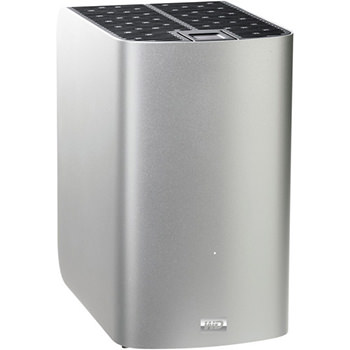Basic Image Backup Tips for Beginners
One of the first things that comes to mind when faced with some sort of a disaster (fire or flood, for example) is the safety of the people we love. If one’s family and friends are well and within arm’s reach in the case of such a tragic event, people often tend to think of… photographs. Wouldn’t you? After all, photographs ensure the memory of our children, parents, siblings, friends and the greatest days of our lives remain no matter what. Consequently, it is a good idea to always have a safe copy of all or at least the most important photographs you may have. If you have been storing images on a single computer, DVD or other simple storage, there is no way to make sure that your photographs are 100% safe – all types of storage unfortunately fail, it is just a matter of time! There is a way, however, of eliminating the possibility of loss almost entirely. In this article for beginners photographers, I will provide you with several inexpensive basic backup ideas. Even if you choose not to follow this particular backup strategy, it should give you a decent starting point and help you figure out a way that suits you better. It is worth noting that we do not recommend these tips for professional photographers, as they should take more serious, reliable and faster means of backing up their work.

من أول الأشياء التي تتبادر إلى ذهننا عندما نواجه كارثة ما (حريق أو فيضان، على سبيل المثال) هي سلامة الأشخاص الذين نحبهم. إذا كانت العائلة والأصدقاء في حالة جيدة وفي متناول اليد في حالة وقوع مثل هذا الحدث المأساوي، فغالبًا ما يميل الناس إلى التفكير في ... الصور الفوتوغرافية. أليس كذلك؟ بعد كل شيء، تضمن الصور بقاء ذكرى أطفالنا وآبائنا وإخوتنا وأصدقائنا وأعظم أيام حياتنا مهما حدث. وبالتالي، من الجيد أن يكون لديك دائمًا نسخة آمنة من جميع الصور الفوتوغرافية التي قد تكون لديك أو على الأقل أهمها. إذا كنت تقوم بتخزين الصور على جهاز كمبيوتر واحد أو قرص DVD أو أي وحدة تخزين بسيطة أخرى، فلا توجد طريقة للتأكد من أن صورك آمنة بنسبة 100% - لسوء الحظ، تفشل جميع أنواع التخزين، إنها مسألة وقت فقط! ومع ذلك، هناك طريقة للقضاء على احتمال الخسارة بشكل كامل تقريبًا. في هذه المقالة المخصصة للمصورين المبتدئين، سأقدم لك العديد من الأفكار الأساسية غير المكلفة للنسخ الاحتياطي. حتى إذا اخترت عدم اتباع استراتيجية النسخ الاحتياطي هذه، فيجب أن تمنحك نقطة بداية مناسبة وتساعدك على اكتشاف الطريقة التي تناسبك بشكل أفضل. ومن الجدير بالذكر أننا لا ننصح بهذه النصائح للمصورين المحترفين، حيث يجب عليهم اتخاذ وسائل أكثر جدية وموثوقية وأسرع لدعم عملهم.
One of the first things that comes to mind when faced with some sort of a disaster (fire or flood, for example) is the safety of the people we love. If one’s family and friends are well and within arm’s reach in the case of such a tragic event, people often tend to think of… photographs. Wouldn’t you? After all, photographs ensure the memory of our children, parents, siblings, friends and the greatest days of our lives remain no matter what. Consequently, it is a good idea to always have a safe copy of all or at least the most important photographs you may have. If you have been storing images on a single computer, DVD or other simple storage, there is no way to make sure that your photographs are 100% safe – all types of storage unfortunately fail, it is just a matter of time! There is a way, however, of eliminating the possibility of loss almost entirely. In this article for beginners photographers, I will provide you with several inexpensive basic backup ideas. Even if you choose not to follow this particular backup strategy, it should give you a decent starting point and help you figure out a way that suits you better. It is worth noting that we do not recommend these tips for professional photographers, as they should take more serious, reliable and faster means of backing up their work.

من أول الأشياء التي تتبادر إلى ذهننا عندما نواجه كارثة ما (حريق أو فيضان، على سبيل المثال) هي سلامة الأشخاص الذين نحبهم. إذا كانت العائلة والأصدقاء في حالة جيدة وفي متناول اليد في حالة وقوع مثل هذا الحدث المأساوي، فغالبًا ما يميل الناس إلى التفكير في ... الصور الفوتوغرافية. أليس كذلك؟ بعد كل شيء، تضمن الصور بقاء ذكرى أطفالنا وآبائنا وإخوتنا وأصدقائنا وأعظم أيام حياتنا مهما حدث. وبالتالي، من الجيد أن يكون لديك دائمًا نسخة آمنة من جميع الصور الفوتوغرافية التي قد تكون لديك أو على الأقل أهمها. إذا كنت تقوم بتخزين الصور على جهاز كمبيوتر واحد أو قرص DVD أو أي وحدة تخزين بسيطة أخرى، فلا توجد طريقة للتأكد من أن صورك آمنة بنسبة 100% - لسوء الحظ، تفشل جميع أنواع التخزين، إنها مسألة وقت فقط! ومع ذلك، هناك طريقة للقضاء على احتمال الخسارة بشكل كامل تقريبًا. في هذه المقالة المخصصة للمصورين المبتدئين، سأقدم لك العديد من الأفكار الأساسية غير المكلفة للنسخ الاحتياطي. حتى إذا اخترت عدم اتباع استراتيجية النسخ الاحتياطي هذه، فيجب أن تمنحك نقطة بداية مناسبة وتساعدك على اكتشاف الطريقة التي تناسبك بشكل أفضل. ومن الجدير بالذكر أننا لا ننصح بهذه النصائح للمصورين المحترفين، حيث يجب عليهم اتخاذ وسائل أكثر جدية وموثوقية وأسرع لدعم عملهم.

تعليق